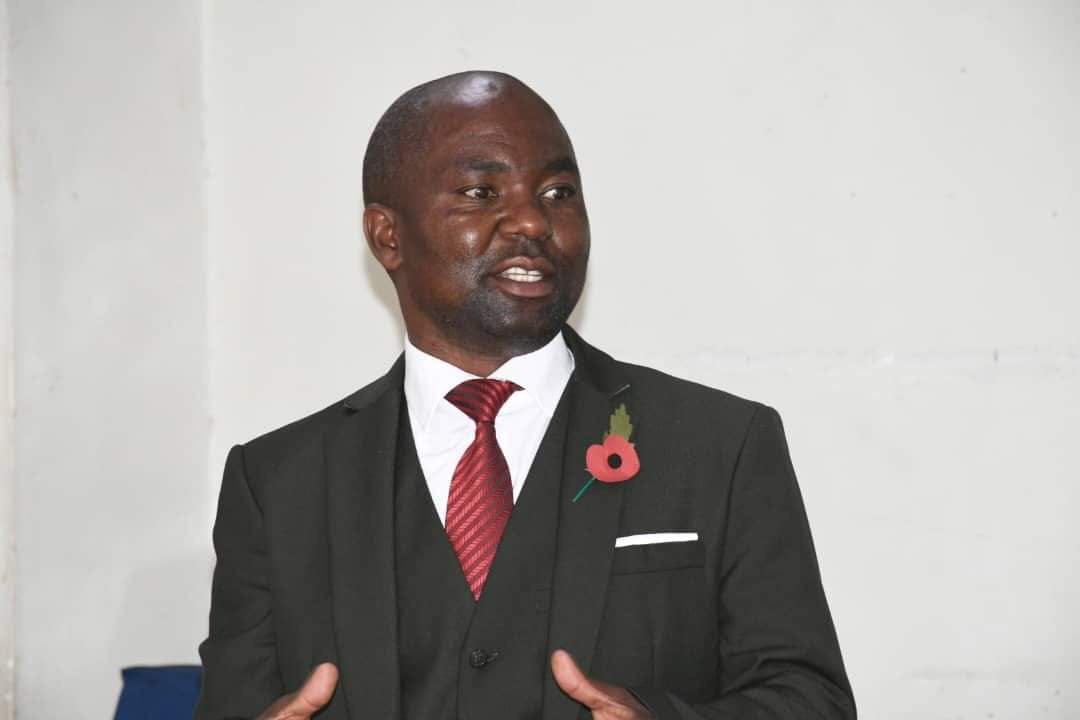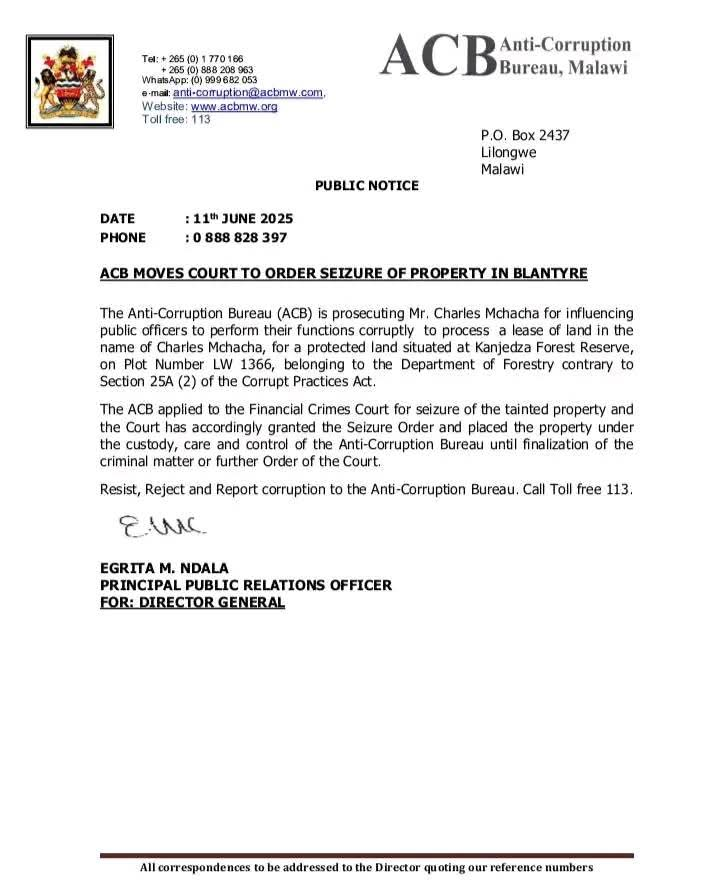By Burnett Munthali
Chingale, Zomba – A large-scale land registration initiative under the Malawi Watershed Services Improvement Project (MWASIP) has garnered positive feedback as nearly 50,000 residents in Chingale, Zomba, have successfully registered their land. Spearheaded by the Ministry of Lands, the project is part of a wider effort to promote land security, address conflicts, and improve environmental stewardship across Malawi.
MWASIP, through the Ministry of Lands, has set an ambitious goal of registering customary land ownership to empower local communities and mitigate long-standing land-related disputes. Principal Lands Registrar, Anthony Nzima, underscored the significance of this project, explaining that formal land registration not only provides clarity in ownership but also encourages sustainable land management practices that protect Malawi’s natural landscape.
“The land registration exercise will help resolve disputes over boundaries and ownership while also promoting responsible land use,” Nzima told reporters in Blantyre. “This initiative is as much about community stability as it is about conservation and improving the local environment.”
After successful implementation in Chingale, Zomba, MWASIP is now expanding its reach to Traditional Authority Kunthembwe in Blantyre. The project is actively operational in several districts, including Mangochi, Ntcheu, Machinga, Balaka, Zomba, Neno, and Blantyre, where it supports communities in securing land rights and promotes watershed conservation activities.
The Ministry of Lands has partnered with local leaders and stakeholders to drive this initiative, which has already begun transforming perceptions about land ownership and management in rural communities. Residents of Chingale have expressed satisfaction with the project, noting that formalized land registration gives them confidence in their ownership rights and helps prevent family disputes over inheritance and boundary lines.
MWASIP’s impact is not limited to legal ownership; it also seeks to strengthen environmental protection through improved land use practices. With communities more assured of their land rights, they are better positioned to engage in sustainable agricultural practices that safeguard watersheds and reduce land degradation, contributing to the preservation of vital ecosystems.
The next phases of the MWASIP land registration exercise in Traditional Authority Kunthembwe are expected to replicate the success seen in Zomba, promoting peace, environmental sustainability, and economic empowerment across Malawi’s rural areas. Through MWASIP, the Ministry of Lands is advancing Malawi’s development goals by aligning land ownership with national conservation objectives, fostering a future where community stability and environmental health go hand in hand.




